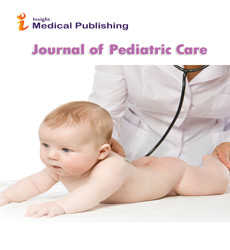Abstract
Cause specific management of shock in neonate
Understanding the pathophysiology of neonatal shock helps to recognize and classify shock in the early compensated phase and initiate appropriate treatment. Hypovolemic shock in neonate is usually due to antepartum hemorrhage, post-natal blood loss iatrogenic or secondary to disseminated intravascular coagulation or vitamin K deficiency or excessive insensible water loss in extreme pre-terms. Cardiogenic shock in the neonate may be caused by myocardial ischemia due to severe intra-partum asphyxia, arrhythmias, primary structural heart disease, and mechanical reduction of cardiac function or venous return secondary to tension pneumothorax or diaphragmatic hernia and disturbance of transitional circulation due to persistent pulmonary hypertension in newborn or patent ductus arteriosus in premature infants. Distributive shock caused by neonatal sepsis, vasodilation, myocardial depression or endothelial injury and obstructive shock is caused from tension pneumothorax or cardiac tamponade. The immediate aim of management of neonatal shock is to optimize perfusion and delivery of oxygen and nutrients to the tissues. The American College of Critical Care Medicine estimates that 60 minutes is the average time needed to provide adequate circulatory support and block the development of shock. The first step in managing shock in the newborn during the first 5 minutes is to recognize cyanosis, respiratory distress and decreased perfusion. This should be followed immediately by airway access and ventilation to optimize oxygenation. Rapid peripheral, central venous or intraosseous accesses are of primary importance in the initial management of the newborn in shock. Any baby with shock and hepatomegaly, cyanosis or a pressure gap between upper and lower limbs should be treated with prostaglandin within 10 min of birth until congenital heart disease is excluded. Inotropes like dopamine, dobutamine, epinephrine and norepinephrine are indicated via IV or IO route before central access is achieved when myocardial contractility remains poor despite of adequate volume replacement. Delay increases mortality 20-fold.
Author(s): Mohammad Monir Hossain
Abstract | Full-Text | PDF
Share this

Google scholar citation report
Citations : 130
Journal of Pediatric Care received 130 citations as per google scholar report
Abstracted/Indexed in
- Google Scholar
- China National Knowledge Infrastructure (CNKI)
- Cosmos IF
- WorldCat
- Geneva Foundation for Medical Education and Research
- Secret Search Engine Labs
Open Access Journals
- Aquaculture & Veterinary Science
- Chemistry & Chemical Sciences
- Clinical Sciences
- Engineering
- General Science
- Genetics & Molecular Biology
- Health Care & Nursing
- Immunology & Microbiology
- Materials Science
- Mathematics & Physics
- Medical Sciences
- Neurology & Psychiatry
- Oncology & Cancer Science
- Pharmaceutical Sciences

